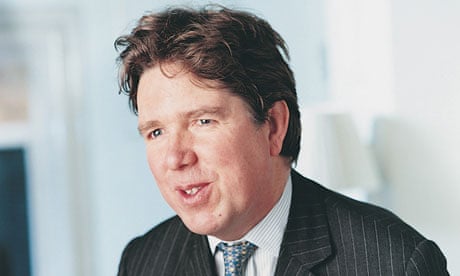A top Bank of England policymaker hinted on Tuesday that the central bank was considering charging high-street banks a negative interest rate in a desperate move to encourage more lending to small businesses.
This would mean banks being charged to hold deposits with the Bank of England, encouraging them to lend more of their funds to the private sector.
Speaking to MPs on the Treasury select committee, deputy governor Paul Tucker said he was prepared to consider "extraordinary" policies after it became clear that current schemes were failing to spur lending to small and medium-sized businesses (SMEs).
The plan would involve Threadneedle Street setting up a separate interest rate just for banks, leaving base rates, which provide the basis for mortgages and savings rates, untouched.
The European Central Bank has maintained a separate bank rate since its inception to manipulate bank lending behaviour.
Tucker admitted that cheap loans directly funded by the central bank were failing to reach small businesses, undermining a key policy to drive growth.
He said successive schemes designed to boost lending to small businesses had failed to reach their target after the majority of loans offered as part of the central bank's £80bn funding for lending scheme went to homebuyers.
Tucker, who lost out to the Canadian Mark Carney in the race to succeed Sir Mervyn King as governor of the Bank, said he favoured a plan to encourage major corporations, which are flush with cash, to offer loans in partnership with the central bank to bypass the ailing banking sector.
"I am worried, and this is a personal opinion, that the current battery of credit policies are not reaching small and medium-sized businesses at the moment," he said.
Adding that he was sceptical that it would be a quick fix, he said: "I hope that we will think about the constraints of setting negative interest rates. This would be an extraordinary thing to do and it needs to be thought through carefully."
Andrew Tyrie, chair of the Treasury select committee, said: "The lack of lending to SMEs is inhibiting economic growth in the UK. The MPC is right to be looking at additional tools, or changes to existing tools, that could help."
Ray Boulger of mortgage adviser John Charcol said negative interest rates would result in losses for banks that kept money on deposit with the Bank of England, increasing the pressure to lend to private borrowers. He said the mortgage market would be a major beneficiary: "This increases the likelihood of genuine cuts in two-year fixed rates, with the scope for more cuts in longer-term rates as well."
Analysts likened the discussion about negative interest rates inside the Bank of England to blue-sky thinking and said any action was likely to come long after members of the monetary policy committee (MPC) had considered injecting further funds into the economy through the central bank's policy of quantitative easing (QE).
Tucker said: "I remain open to doing more QE, depending on the outlook for demand and inflation.
"Nobody on the committee thinks that QE has reached the end of the road and that it is not a useful instrument any more. We stand prepared to do more, if we judge that necessary."
Challenging critics of QE, Tucker said the MPC believed it continued to benefit the economy and without it lending would be more restricted. "We are absolutely committed to supporting growth within the constraints of keeping inflation to its medium-term target," he said.
David Miles, a former City economist and external member of the MPC, told MPs he was prepared to allow inflation to rise further above its 2% target to support growth, though it was his view that prices would be unaffected by a boost to QE.
In the US, Federal Reserve chairman Ben Bernanke strongly defended the Fed's own QE programme, which he said had been essential for the stock market's recovery. "To this point, we do not see the potential costs of the increased risk-taking in some financial markets as outweighing the benefits of promoting a stronger economic recovery and more rapid job creation," Bernanke told the Senate banking committee.
The Fed is buying $85bn (£56bn) in bonds each month and has said it plans to continue until it sees a substantial improvement in the outlook for the labour market.
The Bank of England has pumped £375bn into the financial system over the last four years through QE and there is a growing expectation that the MPC will increase the amount to £400bn sometime in the spring. At the last meeting, three MPC members, including King, voted to increase QE by £25bn.
Most UK economic indicators have turned south in recent weeks, wiping out hopes that the UK would recover strongly after four years of intermittent low growth and recession. Many City economists believe the UK will avoid a triple-dip recession despite a 0.3% contraction in the last three months of 2012, though growth will remain weak.

Comments (…)
Sign in or create your Guardian account to join the discussion